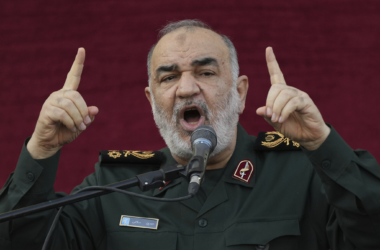Argentina’s upcoming presidential election has caught the attention of risk-taking investors who are willing to place bets, despite the long odds, that a new government can rescue South America’s second-largest economy from its ongoing crisis. While many traders remain cautious and uncertain about the leading libertarian candidate, Javier Milei, some daring bond investors are taking calculated risks. Their wager is based on the belief that the election could lead to a more market-friendly government, regardless of whether Milei, Patricia Bullrich, or Sergio Massa emerge as the victor on October 22.
Christine Reed, a portfolio manager at global investment manager Ninety One, expressed optimism about Argentina’s election outcome. She noted that approximately two-thirds of the country’s voters support significant fiscal consolidation, which is favorable for bond investors. Despite the risk associated with Argentina due to its history of sovereign debt defaults and declining bond prices, Reed revealed that her investment firm had increased its allocation to the country since Milei’s unexpected victory in the August open primary election.
Javier Milei, an economist and member of Argentina’s lower house of Congress, advocates for substantial spending cuts, relaxed capital controls, and eventual dollarization of the economy. While these measures theoretically benefit the markets, implementing them in an economy plagued by triple-digit inflation, negative net foreign currency reserves, rising poverty rates, and a depreciating currency is challenging. Additionally, Argentina’s $44 billion loan program with the International Monetary Fund (IMF) is on shaky ground.
Patricia Bullrich, who served as a minister in former President Mauricio Macri’s market-friendly government, also promises to reduce the fiscal deficit and stop money printing. Sergio Massa, representing a more centrist bloc in the ruling coalition, pledges a zero deficit by 2024 but has increased spending recently to boost his election prospects.
Rob Citrone, founder of U.S.-based hedge fund Discovery Capital Management, sees Argentina as one of the most promising opportunities in emerging markets. He views Milei as a radical proponent of free-market principles and a smaller government, which he believes represents a generational change.
The August primaries signaled Vice President Cristina Fernandez de Kirchner’s weakening influence as a left-wing populist and former two-term president with a history of confrontation with investors. She has taken a back seat in the lead-up to the election, indicating a shift towards a more market-friendly policy framework.
Despite the current low bond prices trading in the high 20s and low 30s in cents on the dollar, well below even countries in default like Ghana or Sri Lanka, some investors find Argentina’s depressed values appealing, particularly from a valuation perspective.
Argentina’s presidential election is presenting a unique opportunity for risk-taking investors who believe in the potential for a more market-friendly government. While the challenges facing the country are substantial, the possibility of significant fiscal consolidation and policy shifts has sparked interest among bond investors. The outcome of the election remains uncertain, and concerns persist, but for some, the potential rewards outweigh the risks in this long-shot gamble on Argentina’s future.








